
2021: In the News


Brown: Analyze tax policy by race to narrow wealth gap

Georgiev: Requiring human capital metrics could improve workplaces

Georgiev: Pay-ratio rule compares ‘apples and avocados’
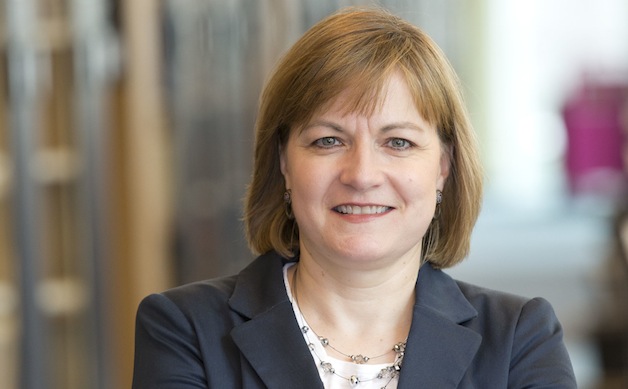
Price: Pandemic perception influenced by where you live

Shepherd's research shows how 'dark money' influences judges

Broyde debunks claim that rabbinical court forbids child vaccinations

Price: Vaccine mandate in Georgia courtrooms unlikely

Brown: Tax code needs rewriting to remove racist inequalities

Smith: Younger doctrine created de facto debtors’ prisons

Deets: Why jury selection in Arbery trial took over 2 weeks

Brown: 'Billionaire tax' proposal killed by the wealthy

Deets: Hardships in selecting a small-town jury

Brown: Tax code reinforces racial wealth gap

Georgiev’s CEO pay ratio scholarship cited in South Africa

Brown: U.S. tax system impoverishes Black Americans

Book review: Dudziak's 'Making the Forever War'

Nash: Statute is clear on judicial investments, conflict of interest
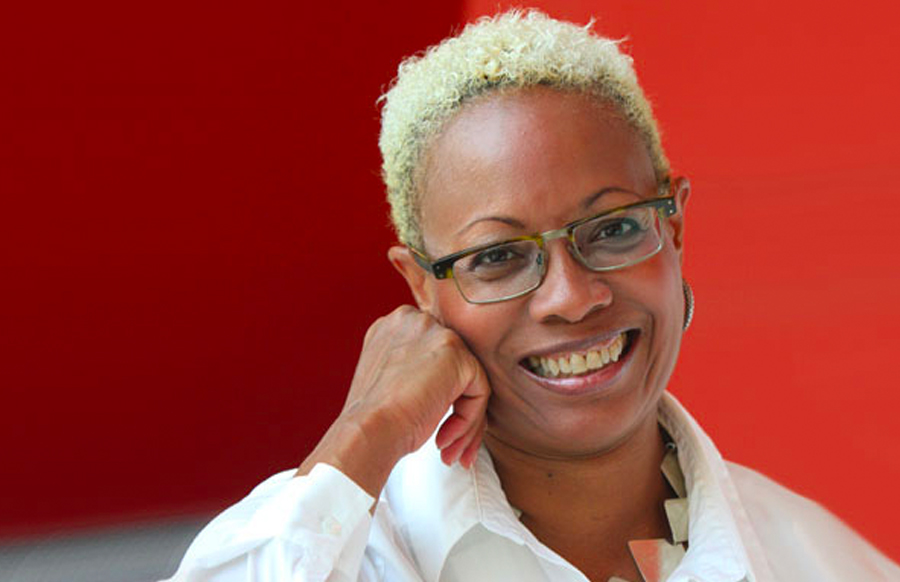
Brown: Congress passes on chance to close racial wealth gap

$5 million gift establishes Emory Law's new Civil Rights Center

Volokh to Georgia's high court: Adult club tax violates First Amendment

Nash: Why and when Georgia justices retire (or not)

Dudziak: Afghanistan reinforces need for U.S. military restraint

Vertinsky: For medical breakthroughs, change scientific collaboration

Georgiev: SEC likely to push companies for more workforce disclosures

Price: It's doubtful Biden can challenge states' anti-mask policies
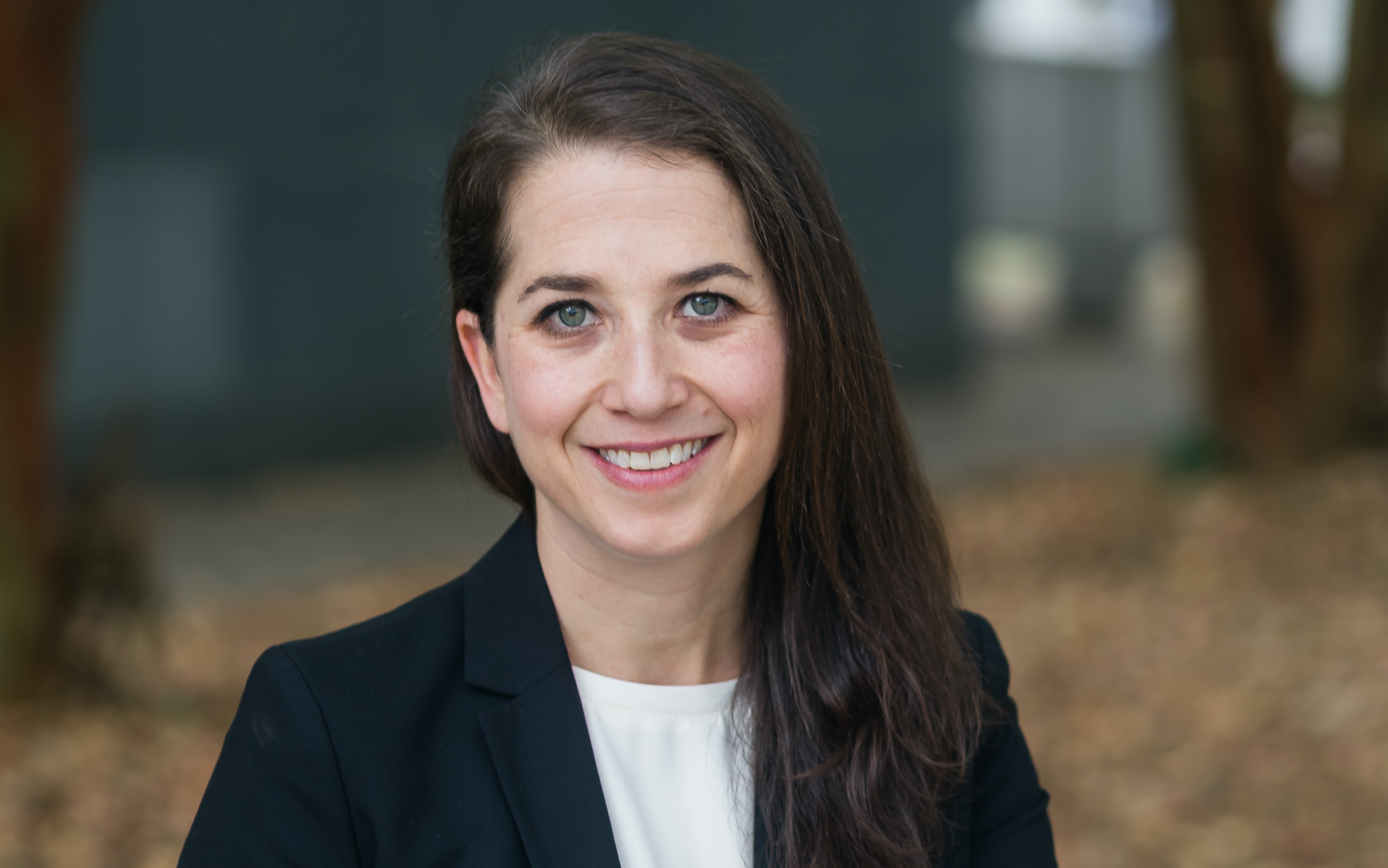
Goldstein: How small farms can feed cities, not just neighborhoods

Brown: The IRS targets poor Americans
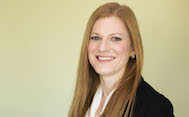
Satz: Private employers can mandate COVID-19 vaccinations

Brown's work cited in call for tax reform

Pinder: Governor unlikely to challenge schools' mask requirements

Georgiev quoted on executive pay at car start-up

Smith: SCOTUS ruling on California donor disclosure doesn't offer standard

Georgiev authors comment letter to the SEC on ESG disclosure

Bobinski: How does medical innovation affect ethics, care and research?

Gallup: 70% of Americans support same-sex marriage
A new Gallup poll shows 70% of people polled support same-sex marriage. In 1996, only 27% supported it. Asa Griggs Candler Professor of Law Tim Holbrook, a long-time advocate for LGBTQ+ rights, says it's because more people now openly identify as LGBTQ+. "I think that it means that the queer community just becomes part of the tapestry of American culture and American life in a way that is inclusive and welcoming," he said.

Brown on 'The State of Working America'
Asa Griggs Candler Professor of Law Dorothy Brown was interviewed on the Economic Policy Institute's podcast, "The State of Working America." She spoke with the institute's Eve Tahmincioglu and provided "a cross-disciplinary analysis exposing the racism of the American tax system."

Brown: CEO pay increased while their companies cut staff
Unemployment numbers don't tell full story of companies’ current labor challenges, Asa Griggs Candler Professor of Law says on "Morning Joe." A recent Pew study showed that two thirds of Americans "are thinking about what they want to do going forward," Brown said. "Do they want reexamine their field and their occupation?" Also, the unemployment rate is 9.1 percent for Black Americans, compared to 5.8 percent overall. Also overlooked is "while they're cutting staff, CEO pay has increased."

Holbrook: 'Submarine' patents may be in peril
Hundreds of "Submarine Patents' may be affected by a recent federal circuit ruling, Bloomberg Law reports. A Nevada man's quest for patents on computer designs may be at an end after a ruling that the decades-long delays getting his applications considered may be his own fault. "I found the prosecution laches decision yesterday fascinating/odd for a number of reasons," Holbrook said.

Brown: 21st-century white citizens still benefit from racism of the past
Talking with MSNBC's Chris Hayes on the anniversary of the Tulsa Massacre that burned "Black Wall Street" to ash, Asa Griggs Candler Professor of Law Dorothy Brown notes that dozens of similar assaults on Black excellence occurred across the country and that white U.S. citizens still benefit "in the 21st century from systemic racism that is not too distant past."

Pinder: Invoking the Fifth while Black
While the "Pot Brothers" legal advice to invoke the Fifth Amendment during a traffic stop may be correct, Assistant Professor Kamina Pinder says that could play out differently for people of color. In an interview with Vice about two attorneys' approach to never talking to police after identifying yourself she says, "If you are a person of color, specifically Black or Latinx, you cannot just reach into your wallet and snap out, "This is the only information you're going to get from me.'"

Finance columnist features Brown's book on wealth's racial disparity
In an interview with Washington Post financial columnist Michelle Singletary, Asa Griggs Candler Professor of Law Dorothy Brown talks about her book, "The Whiteness of Wealth" and says the U.S. tax code has built in advantages for Whites, while it disadvantages Blacks. "Our tax laws were designed with White Americans in mind," Brown writes. "That's why no solution proposed by either the right or left — not better jobs, not increased homeownership, and not more access to higher education — will be effective without significant and fundamental tax reform."

Brown: How taxes keep American wealth white
Building wealth is hard, but the racial wealth gap makes just how difficult it is apparent. Asa Griggs Candler Professor of Law Dorothy Brown joined the Washington Post's Michelle Singletary on NPR's 1A to discuss Brown's argument that the tax code is partially to blame.

Justice Breyer: Don't retire, Broyde says
Calls by some Democrats for Supreme Court Associate Justice Stephen Breyer to retire are unwarranted, Emory Law Professor Michael Broyde says. "There is no reason for Justice Breyer to resign, and there are good reasons for him to continue doing the excellent job he is doing," he writes in an op-ed for CNN.

Brown: Tax code racial inequity and how to fix it
Asa Griggs Candler Professor of Law Dorothy Brown was a guest on "The View" to discuss how the tax code subsidizes white wealth and penalizes Black Americans, even when they participate in the exact same behaviors.

Brown on gift that paid Morehouse Class of 2019 student loans
Black students tend to borrow more money than white students to go to college, and students at historically Black colleges and universities, in particular, borrow nearly twice as much as students at non-HBCUs, MarketPlace reports. Thus, donor Robert Smith's gift to pay off loans for 400 Morehouse students is doubly generous. "Student debt is a significant drag on Black college grads who have done everything right, their ability to produce wealth going forward," Asa Griggs Candler Professor of Law Dorothy Brown said.

Brown: U.S. tax code drives racial wealth disparity
"A typical white family has eight times the wealth of a typical Black family in the United States,” Dean Obeidallah writes for Salon. The why behind that racial wealth gap has, until recently, overlooked one driving reason: The U.S. tax code. “That's why Dorothy Brown … wrote her compelling new book, 'The Whiteness of Wealth: How the Tax System Impoverishes Black Americans — and How We Can Fix It.'"

Nash: Delay in McGahn case may be to avoid unwelcome precedent
Since President Biden took office, the Department of Justice has been granted two delays in the House Judiciary Committee's long-running quest to compel Don McGahn, Trump's former White House counsel, to testify before Congress. Professor Jonathan Nash told The Hill that the Biden administration may believe the best path forward is to settle the case in order to avoid a decision that could hurt the executive branch's interests. A court win could create an unwelcome precedent the next time Republicans wield oversight gavels, he added.

Brown: Racial inequities built into IRS code aggravate the tax gap
IRS Commissioner Charles P. Rettig told a Senate Finance Committee that it's not "outlandish" to believe the U.S. loses $1 trillion annually via owed taxes that aren't collected. Asa Griggs Professor of Law Dorothy Brown told the committee the problem is aggravated by a different tax gap — the favorable treatment the tax code provides wealthy, largely White taxpayers, compared to lower income, largely Black and Latino workers.
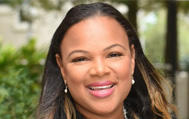
Johnson: Competition among high-cost digital lenders could destabilize the broader financial system
Digital lenders that partner with banks to offer consumers high-cost loans may be at risk of a crackdown under President Joe Biden's administration. Prof. Kristin Johnson, a law professor at Emory University, cautioned without adequate consumer protections, lenders can engage in a "race to the bottom" on loan standards and ultimately expose the entire financial system to risk.

Brown's ideal system would tax most income at same rate
In a Q & A with Vox, Asa Griggs Candler Professor of Law Dorothy Brown talked about her book "The Whiteness of Wealth," and how to repair the tax code to remove provisions that benefit white citizens and disadvantage Black people. "My ideal tax system ... is one where pretty much all income is taxed under the same progressive rate system; we get rid of these deductions and exclusions that are overwhelmingly benefiting white Americans. And then we would create one deduction — I call it a living allowance — that's based on what you would need to live in the geographical area you're in."

Brown: Repealing cap on state, local tax deductions would increase wealth gap
During her testimony at a Senate Finance Committee Tuesday on inequality in the U.S. tax code, Asa Griggs Professor of Law Dorothy Brown agreed with GOP assertions that repealing the $10,000 cap on the deduction of state and local taxes would run counter to efforts to close income and wealth gaps. Brown told the panel that tax deductions tend to favor white over Black households, particularly since it is mostly wealthier Americans who still itemize on their returns following changes made in the 2017 tax code.

Volokh: DC statehood lawsuit concerns dilution of states' voting power
Georgia Attorney General Chris Carr and 22 of his national counterparts have started a coalition to prevent DC from becoming a state. They say they're defending the Constitution. Emory Law Professor Alexander Volokh said the issue is how it could dilute voting power of existing states. "Whenever a new state is admitted that dilutes voting power of every existing state, so that means if you are concerned about the power of your state to shap'e the destiny of America, you can welcome new states," he said. "But on the other hand you can say, No, if we're going to dilute voting power it should be valid,'" Volokh said.

Johnson: Fintechs Need Strong Consumer Protections, Diversity, Inclusion Asserts Key Congressman
The U.S. House Committee on Financial Services Subcommittee on Consumer Protection and Financial Institutions requested testimony from Emory Law Asa Griggs Professor of Law Kristin Johnson, in the virtual hearing "Banking Innovation or Regulatory Evasion? Exploring Trends in Financial Institution Charters."

Johnson testifies in House Subcommittee hearing on banking regulation
The U.S. House Committee on Financial Services Subcommittee on Consumer Protection and Financial Institutions requested testimony from Emory Law Asa Griggs Professor of Law Kristin Johnson, in the virtual hearing "Banking Innovation or Regulatory Evasion? Exploring Trends in Financial Institution Charters."

Brown on taxes: 'The system is what’s wrong'
The tax code is designed to build white wealth, Asa Griggs Candler Professor of Law tells New York Magazine. "If you're a Black American, going, 'What am I doing wrong?' The answer is nothing. The system is what's wrong."

Brown: 'The Hidden Racism of Taxes'
Asa Griggs Candler Professor of Law Dorothy Brown, author of "The Whiteness of Wealth," was featured on the New Yorker Radio Hour to explain how the seemingly race-neutral tax code compounds inequalities and prevents Black people from building wealth.

Georgiev: The Human Capital Management Movement in U.S. Corporate Law

Nash: Expect more conflict over appellate, Supreme Court nominations
President Joe Biden has announced 11 nominations for federal judgeships (including Emory Law grad Julien X. Neals 91L). What are their chances in a still-polarized Senate? Professor Jonathan Nash tells Reuters there are structural impediments to how far Republicans can go to obstruct Biden's effort to reshape the judiciary. Legislators who oppose nominations risk offending colleagues who make recommendations on judgeships in their states. "You're more likely to see (Republicans obstruct) Supreme Court nominees, and the appellate courts," Nash said.

Brown: Tax system reflects built-in racism
Asa Griggs Candler Professor of Law Dorothy Brown spoke on how racism and inequality are reflected in the American tax system. She was joined by Georgia State University Professor Maurice Hobson at a virtual event hosted by Charis Books and More in Decatur.

Brown: From home buying to marriage to investments, tax code penalizes Blacks
In her new book "The Whiteness of Wealth," Asa Griggs Candler Professor of Law Dorothy Brown illustrates the way the tax code penalizes Blacks through the lens of Atlanta area homeowner "John," who wanted to raise his sons in a diverse neighborhood. Brown's research finds houses in Black neighborhood don’t appreciate like those in predominantly white neighborhoods. John sold at a loss and moved to a white neighborhood when the gap in property taxes affected the quality of his sons' schools. "This is just one of many ways that the U.S. tax code perpetuates the racial wealth gap," Brown writes for the New York Times. "Collecting tax data by race is a first and necessary step in making our tax laws more equitable."

Brown: Biden's capital gains tax reform plans 'timid'
President Joe Biden says he will increase corporate, estate, and capital gains taxes to fund his Build Back Better plan for infrastructure, green energy and education, among other priorities. Asa Griggs Candler Professor of Law Dorothy Brown has argued capital gains should be taxed on equal footing with income, not just for those making $1 million or more. "If you really want to talk about tax reform that gets at systemic racism, look at the systemic racism that made stock ownership an activity white Americans have engaged in for decades but not Black Americans," she tells Vox.

Brown: Tax code penalizes Blacks of all incomes
Asa Griggs Candler Professor of Law Dorothy Brown was interviewed at the Bloomberg Equality Summit, "Is the Tax Code Racist”?" about her new book "The Whiteness of Wealth" and how the code is geared to build white wealth. Loopholes and benefits concerning marriage, property and investments work against Blacks, she says. "It doesn’t matter how much income you have, tax law disadvantages Black Americans across the income spectrum."

Brown: White taxpayers more likely to benefit from tax breaks than Blacks
"The IRS is unusual among federal agencies in never asking about race—the only information it requests is what it's required by law to ask and what it needs to calculate people's tax bills," according to Politico. If the IRS started collecting that data, it would show who benefits from tax breaks. "You would find provision after provision where white taxpayers are more likely to benefit than Black taxpayers," Asa Griggs Candler Professor of Law Dorothy Brown said.

Businessweek features Brown's new book, 'The Whiteness of Wealth'
Asa Griggs Candler Professor of Law Dorothy Brown is on the cover of the March 15 issue of Bloomberg Businessweek. Her new book, "The Whiteness of Wealth," details her ideas on how to overhaul a tax code geared to increase white wealth and results in Blacks paying more taxes for the same income.

Satz: Could states, employers require COVID-19 vaccinations?
COVID vaccinations are currently being administered under emergency conditions to quell a worldwide pandemic. But going forward, could employers or schools require proof of vaccination? " I think there would be some legal risk to an employer that chose to make a vaccine mandatory," Emory Law Professor Ani Satz tells Fox 5 Atlanta. "But I think there's some legal arguments to support that choice."

Price: State COVID-19 restrictions based on science will withstand lawsuits
As long as a state can show its coronavirus rules are based on scientific evidence, it's unlikely a court will overturn the restrictions, Emory Law Professor Polly Price tells Law 360.

Brown: Warren’s 'ultra millionaire tax' illustrates massive tax inequity
Then presidential candidate Elizabeth Warren's proposal to institute a two percent tax on Americans with more than $50 million in assets illuminates the racial wealth gap, Emory Law Professor Dorothy Brown told The Nation. "Given the gap, this tax will overwhelmingly hit white wealthy Americans," said Brown, who backs the idea. "Even wealthy black Americans don't reach the heights of a Bezos or Zuckerberg."

Volokh: Allow electric car industry to sell directly to consumers
Associate Professor Alexander Volokh testified before a Georgia House of Representatives subcommittee in a battle between traditional car manufacturers and dealerships, and the electric car industry, which tends to go directly to the consumer for sales. Volokh told the subcommittee that businesses should be allowed to find the best ways to sell their products. "It shouldn't be up to us to tell manufacturers the best way to reach their customers," he said.

Shepherd: Previous work experience affects judicial outcomes
A recent Bloomberg story on what progressive Democrats hope for in upcoming federal judicial appointments cited Professor Joanna Shepherd's study on how judges' backgrounds can make a difference in outcomes. Her research found Judges with experience as federal prosecutors or corporate lawyers are less likely to rule in favor of workers in employment disputes.

Johnson: Did social media 'manipulate’'GameStop?
Emory Law Professor Kristin Johnson joined former Commodity Futures Trading Commission General Counsel Patrick McCarty and Columbia University's Josh Mitts to talk about fairness, hedge funds and social media in the context of the recent fluctuations of GameStop stock. Listen on Roll Call's FinTech Beat podcast.

Shepherd: Judges who were prosecutors, corporate lawyers, more likely to rule against workers
Emory Law Professor Joanna Shepherd's recently released study "Jobs, Judges, and Justice" found judges who were previously prosecutors or corporate lawyers "are significantly more likely than other types of lawyers to rule against workers as judges." She spoke with NPR about the impact of diversity on the bench.

Shepherd: Stop honoring a racist eugenicist
While Emory has worked hard to eliminate racism and anti-semitism, its Yerkes National Primate Research Center is named for Robert Yerkes, Professor George Shepherd writes in an op-ed for the Emory Wheel. He says the University should stop honoring a man who was a racist proponent of eugenics, instrumental in the passage of the Immigration Act of 1924, which excluded millions of Jews from the U.S. in the years before World War II.

Levine: Trump's post-election phone call suggests solicitation
Fulton DA and Emory Law alumna Fani Willis 96L has announced she will investigate solicitation of election fraud, false statements, conspiracy and racketeering charges that stem from former President Donald Trump's post-election phone call to Georgia’s Secretary of State, asking him to find 11,780 votes—one more than he needed to beat Joe Biden. A conspiracy charge is a felony, Emory Law Professor Kay Levine told Bloomberg. Also, Trump's call seems to be evidence of solicitation.

Citing Bond case for Trump defense 'creative,' Smith says
Former president Donald Trump's attorneys have cited a Georgia case from the '60s to support their position that Trump's speech to a crowd, some of whom later attacked the U.S. Capitol, was protected by the First Amendment. In 1965, newly elected Georgia Rep. Julian Bond voiced an opinion opposing the Vietnam War. His House colleagues then refused to allow him to take his seat, but Bond later prevailed in a ruling by the U.S Supreme Court. Professor Fred Smith Jr. told 11 Alive that while creative, it does not necessarily support Trump's case for acquittal.

First Amendment no defense against Trump’s impeachment, professors say
Three Emory Law faculty--Mary L. Dudziak, Michael J. Perry and Alexander Volokh--joined more than 150 law professors who signed a letter published by the New York Times, which says the First Amendment is no shield for former President Donald Trump at his impeachment trial.

Blank: New wargame can teach law of war decision-making
Wargames have long been a part of military training, but now law of war educators are also using the tool, Laurie Blank, director of the International Humanitarian Law Clinic, writes. This year, the Marine Corps Command and Staff College curriculum added a wargame (developed in partnership with the IHL Clinic) that combines legal and operational decision-making. "Not only did the wargame teach students about compliance with the law of armed conflict, it also prepared them to face adversaries who will exploit that compliance for their own tactical and strategic gain."

The Barton Juvenile Defender Clinic helps ensure youth in jail receive special education services
The negotiated settlement comes almost a year and a half after the school system was sued by a 17-year-old who was diagnosed mental illness, the teen’s mother, and a 19-year-old with learning disabilities. Both teenagers were being denied the special education they were entitled to under federal law, the lawsuit stated.

The Barton Juvenile Defender Clinic addresses issues surrounding the school-to-prison pipeline
The school to prison pipeline, that was recently halted during the COVID-19 pandemic, is especially pronounced for Black and Latinx students and students with disabilities and in schools serving impoverished communities, explained Sarah Vinson, M.D., and Randee Waldman, J.D., in a commentary published in The Lancet Child and Adolescent Health.

Volokh: Don't end private prisons, improve incarceration system
The Biden Administration has issued an executive order to not renew federal contracts with privately operated criminal detention facilities. In a post for Reason, Professor Alexander Volokh disagrees. "Well-intentioned prison reformers too often blame private prisons for problems that plague incarceration generally," he writes. Instead of ending private prisons, one could make contracts performance-based, to incentivize measurable factors like post-prison employment and recidivism.

Price: Legislators attempt to rein in governors' emergency powers
In the past year, at least half of the state legislatures proposed limiting governors' emergency powers. Defining when congressional oversight kicks in or public health takes over may be a good idea but "legislating in the midst of an emergency can be a very bad idea," Asa Griggs Candler Professor of Law Polly Price tells Stateline.

Price: Biden's COVID-19 plans are what health officials want
The major points of President Joe Biden's COVID-19 plan are what many state and local health officials have been waiting for, Asa Griggs Candler Professor Polly Price tells NBC. That is: increased testing, boosting PPE supplies via the Defense Production Act and using the CDC's expertise to distribute the vaccine.